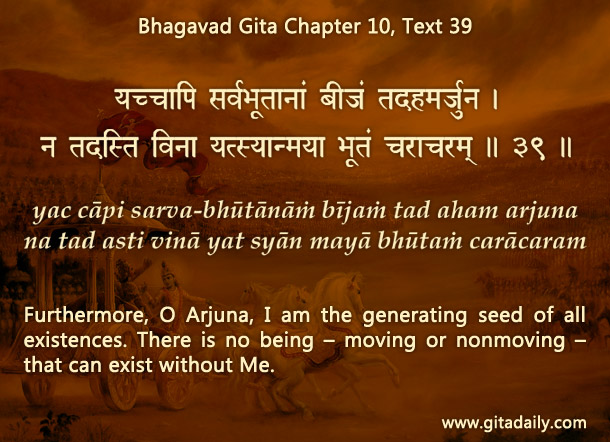Suppose a child asks us, “Is a circle circular?” We wouldn’t just answer affirmatively; we would explain a circle’s definition, thereby underscoring the question’s redundance.
When we ask, “Does God exist?” the question makes sense as long as we conceive of God as some being who supposedly lived somewhere on earth thousands of years ago or lives somewhere up there in the sky.
But this conception is itself flawed. God is not a thing within existence; he encompasses all of existence. Yes, in his specific manifestations, he may manifest at particular times and places, but his defining nature transcends all such localized manifestations. By definition, he is the source and sustainer of everything, as the Bhagavad-gita (10.39) indicates. Without him, absolutely nothing could exist.
Why?
Because God is the only independent existence, the uncaused cause of everything. The existence of everything else is conditional to something else’s existence; all things depend on something else for their existence. A skyscraper, no matter how huge, can’t extend downward endlessly – it needs to be based on the ground. Similarly, all things in existence, no matter how many the things before them, can’t exist without being based in the ground of all existence. That ground is God.
Atheists propose that this ground may be matter or energy or some primordial state of either. But all such things are conditional – they can exist in one condition or another, raising the question of why they existed in the beginning in that condition and not in some other condition. The only thing to which this question about initial conditions doesn’t apply is that thing which by definition is unconditioned. That unconditioned existential foundation of all conditioned existence is God.
Thus, by understanding God’s defining nature, we appreciate how questions about his existence are redundant.
To know more about this verse, please click on the image
Explanation of article:

Podcast:


Leave A Comment